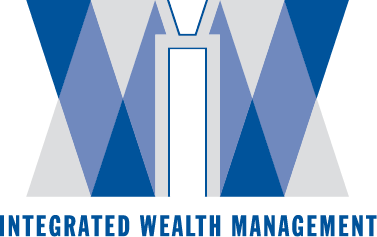Hearing about a recession when you’re retired or nearing retirement is often unsettling. Toss in coming out of the pandemic and feeling the effects of inflation, and it’s only natural to have questions about your retirement plan.
How can I recession-proof my retirement plan?
Are we in a recession or not? And how long will it last?
How do I balance maintaining my lifestyle and ensuring my money will last?
You want to protect your retirement, but it’s hard to know exactly what actions to take (or not take) when weighing current market conditions and your retirement goals. Let’s have an open and honest conversation about what a recession is and how long it may last so you can make educated decisions when reacting to the current state of the economy.
Understanding What a Recession Is
While the definition of a recession is often debated, the standard economic definition is when Gross Domestic Product (GDP) declines for 2 consecutive quarters. According to the Bureau of Economic Analysis of the U.S. Department of Commerce, GDP decreased by 1.6% in Q1 of 2022, and by an additional 0.6% in Q2. By common standards, this means the U.S. economy is in a recession.
Think back to your last economics or social studies class and you may recall GDP is “the value of the goods and services produced in the United States”. GDP is primarily used to:
Measure the rate at which the economy is growing or shrinking
Compare the U.S. economy to other countries
Monitor the growth or decline of specific industries
Some outlets may say we’re not in a recession. Those with this outlook are often using more than just GDP to make their determination. Employment levels, global economic indicators such as the war in Ukraine, and other happenings such as Covid-19 and the impact of the slowed supply chain. In these cases, the determination of a recession is reactionary, meaning it will take time to analyze the data and determine if or when a recession started.
How Long Will the Recession Last?
We regularly rely on history to predict the future. While nobody can provide precise guidelines around the length of our current recession, there are trends when looking at historic data.
It’s easy to jump back in history to The Great Depression which was two recessions that occurred very close together. The Great Depression spanned from 1929-1938 — landing these recessions in every history book and living on through the stories from the generations that raised us.
Thankfully, when comparing The Great Depression to other post-WWII recessions, this long duration is an outlier. Our economy has successfully rebounded from several recessions, most lasting 10-11 months. You may remember the recession that started in 1981 and lasted through the majority of 1982. This 16-month recession occurred when the federal government raised interest rates to combat inflation — sound familiar?
More recently, we all recall the time frame from 2007-2009, often referred to as The Great Recession — which was in large part a reaction to subprime mortgage lenders lending more than many borrowers could afford to pay back. Because these mortgages were bundled and sold as securities, the collapse spanned the entire stock market.
This quick history lesson highlights the worst recessions in modern history. While we’re not downplaying these points in time, we must focus on what caused them, how the federal government intervened, and how ultimately, the economy corrected itself.
Looking at today’s economic conditions, we all feel the effects of rising costs of goods and services thanks to inflation. Inflation, simply put, is where there are too many dollars chasing too few goods. The federal government has stepped in by raising interest rates, causing spending to drastically slow in markets driven by interest rates. In turn, economic activity has slowed, as expected. While nobody signs up for a recession, breaking the cycle of rising inflation is the outcome we look forward to down the road.
Reacting to a Recession as a Retiree
Knowing recessions typically last around 11 months and that we’re seeing factors and correction methods that mirror history, what’s a retiree to do? While we can’t give individualized advice here on our blog, remember that as the economy contracts, many choose to hang on to their securities. Understanding why this is a common strategy is critical.
If you sell securities now, you’d be selling low, when naturally we would all prefer to sell high. This thought process will lead many to leave their investment accounts alone (or to buy). The next year may be a time to tap into a savings reserve you have that allows you to cover your expenses while leaving other investments untouched.
If these thoughts or ideas aren’t in line with your retirement plan, keep in mind we’re highlighting this train of thought as a temporary adjustment. An important aspect of retirement planning is planning for the unexpected; it’s unrealistic to believe there won’t be any curve balls thrown your way.
Meet with a Financial Advisor to Assess Your Financial Position
Cash is king, buy gold, buy stocks — there’s different advice wherever you turn. At the end of the day, you need to assess your financial situation and keep your goals at the forefront. Sticking to your retirement plan and remaining mindful with your money is often the way to go, regardless of the current economic state.
Avoiding high-interest debt and not selling your securities at a discount are key principles to keep in mind today. But how can you turn these scenarios around and be on the receiving end of rising interest rates? And where will gains be found in the stock market? These are just two small factors we consider when building retirement plans.
If you’re navigating retirement through the recession, let us guide you. We’ll stay at your side every step of the way so you can live out your dream retirement. To learn more, schedule a meeting with a financial advisor today.
About Integrated Wealth Management
Integrated Wealth Management is owned by Burt Hutchinson, CPA, CFP®. We’re a CPA-led organization, meaning we’re here to handle your complex tax scenarios and provide cost-saving insight related to your financial plan.
We’re here to guide you through the 3 stages of retirement:
Uncertainty Stage: When you are within 10 years of retirement and have questions about how to make it work
Stability Stage: When you have reached the financial milestone to retire comfortably and confidently
Reflection Stage: When you are looking to leave a legacy
We are also here to provide experienced, empathetic support during times of loss, such as the death of a life partner. You need confidence and a sense of security to enjoy retirement. As fiduciaries with a fee-only structure, we never receive commissions. Free of ulterior motives, you can be sure we’re focused on your goals.
Continued Readings:
Sources:
“Gross Domestic Product (Third Estimate), GDP by Industry, and Corporate Profits (Revised), 2nd Quarter 2022 and Annual Update.” Bureau of Economic Analysis. 29, September 2022. https://www.bea.gov/news/2022/gross-domestic-product-third-estimate-gdp-industry-and-corporate-profits-revised-2nd
“Gross Domestic Product.” Bureau of Economic Analysis. 29, September 2022. https://www.bea.gov/resources/learning-center/what-to-know-gdp
https://www.thebalancemoney.com/the-history-of-recessions-in-the-united-states-3306011


